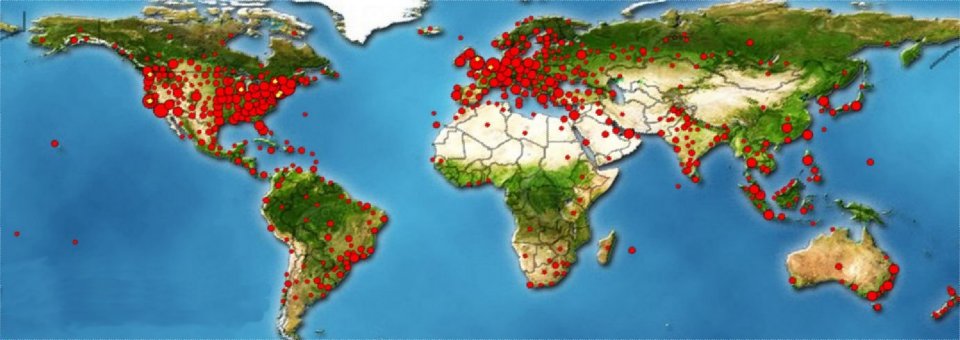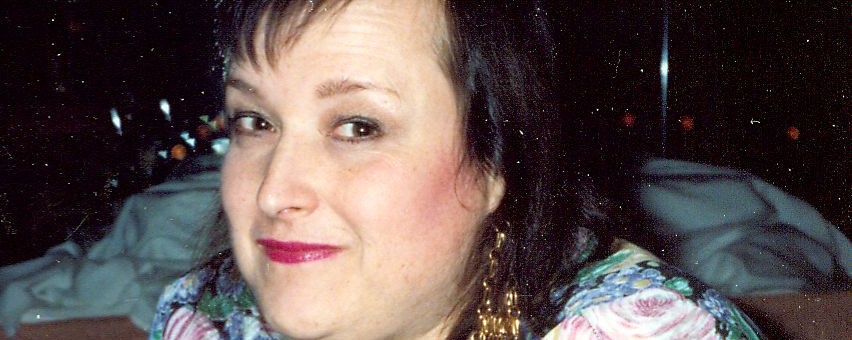Most Recent Articles
The Campaigns Against Transsexuals: Part I (2013)
Today I’m talking about a remarkable—and successful—plot to end sex reassignment in the United States. Yes, right here in River City! The year was 1979.
Read MoreTransgender Communities in the United States in the Late Twentieth Century (2006)
What were the historical roots of this larger transgender community, and how did it so quickly arise and so quickly grow? What kept these communities apart for so many years, and what eventually brought them together?
Read MoreFirst Contact: Transgender Community Educational Efforts in the Late Twentieth Century (Keynote, 2009)
Why is trans education important? Well, ask yourself if there was ever a time in your life when you badly needed information about who you were, what you could do about it, who you could be, and how you could plan your life. If you’re like me, you were at one time or another, and maybe even for half your life, desperate for such information.
Read MoreCurrent Concepts in Transgender Identity (1998)
Current Concepts is an edited textbook; I was privileged to be the editor. The text consists of emerging ideas about trans* issues authored by physicians, psychologists, sociologists, anthropologists, historians, and advocates, many with decades of experience in the field. The work is in part an homage to Richard Green and John Money’s 1969 edited text Transsexualism and Sex Reassignment, which established early treatment protocols. Both Green and Money contributed chapters to Current Concepts. Of Current Concepts, Of just how much things have changed, Green wrote in his chapter, “I am struck at the outset that the biggest change with this new text may be that it is edited by a transsexual.”
Read MoreBlack Telephones, White Refrigerators: Rethinking Christine Jorgensen (1998)
If she changed the world for nontranssexual people, Jorgensen had an even more profound effect on people who were like her. Her story galvanized many transsexual men and women into seeking the same sort of medical treatment. In 1953, Christine Hamburger published a paper in which he described receiving 465 letters from men and women, desperately begging for a “sex change.” Neither he, nor anyone else, was prepared to oblige them.
Read MoreGender Variability, Transsexuals, Crossdressers, and Others (2007)
This draft differs in small way from the printed version. I was unable to scan the printed pages without breaking the book’s spine. The chapter appears here courtesy of Praeger Publishers.
Read MoreComing of Age in the Land of Two Genders (1997)
I was honored to be asked to make a contribution to this book of autobiographies of famous sexologists.
Read MoreTerminology, Gender Diversity, and the Primacy of Gender (2000)
I’m grateful to Dr. Sandra Cole for allowing me to be second author of this chapter.
Read MoreGender Identity: From Dualism to Diversity (2007)
This draft differs in small ways from the printed version. I was unable to scan the printed pages without breaking the book’s spine. The chapter appears here courtesy of Praeger Publishers.
Read MoreDiscovering Who You Are (1991)
Much has changed since I wrote this series of booklets in the early 1990’s. Not only have I become older and hopefully wiser, but there has been a revolution in the way gender identity issues are viewed. The term “gender dysphoria,” with its implication of mental illness, does not accurately describe the transgender process for all of us, and for most of us, we are only dysphoric for a relatively short time.
Read MoreDeciding What to Do About Your Gender Dysphoria (1991)
Much has changed since I wrote this series of booklets in the early 1990’s. Not only have I become older and hopefully wiser, but there has been a revolution in the way gender identity issues are viewed. The term “gender dysphoria,” with its implication of mental illness, does not accurately describe the transgender process for all of us, and for most of us, we are only dysphoric for a relatively short time.
Read MoreDealing With Your Feelings (1991)
This was the first of a series of booklets I wrote while executive director of nonprofit American Educational Gender Information service.
Read MoreA Word from the Editor (Chrysalis, 1991-1998)
Here are the Word From the Editor/Publisher columns from the various issues of Chrysalis.
Read MoreThe Shark in the Swimming Pool (1993)
Confronted, Willis claimed the increasing tensions within the group were the fault of the various group members, and certainly not his. He was insistent he was not the problem.
Read MoreMy Three Transitions (1996)
Ten years earlier, at age 18, the answer to the question “Will I someday pass?” would have been an unequivocal yes. Ten years in the future, at age 38, the answer would have been an unequivocal no. Looking at my thinning hair and hardening features, the best answer I could come up with was an unequivocal maybe.
Read MoreIn Search of the “True” Transsexual (1996)
In dealing with my own transsexualism. and in working with hundreds of other transsexual people, it has become clear to me that transsexualism, as conceptualized by Benjamin, is an invented way of looking at a much larger transgender phenomenon, and that the process of sex reassignment is but one way of dealing with that phenomenon.
Read MoreAriadne Kane Interviews Dallas Denny (2005)
I chanced across this video, which was made by LipTV in 2005. I had had no idea it was available online. In it, I talk with Ariadne Kane about Fantasia Fair and a little about myself.
Read MoreProdigal Son (1994)
My feelings about the rejection have ranged from bewilderment to sorrow to anger, but the overriding emotion, the one which came first and which has lasted longest, is disappointment. It reinforces my belief that my family was just an assortment of people I drew by chance, like one draws a roommate in a college dorm. My family is made up of imperfect human beings, unable to love unconditionally, unable to rise to a challenge, unable to communicate. I’m sad for them, for I gave them a wonderful challenge, and they have failed to rise to it.
Read MoreAn Interview with Anne Bolin (1993)
Is the feminist movement a threat? You’d better believe it. It’s a big threat. When my male students get concerned in my classes on gender and sex, I tell them. “You bet it’s a threat. It’s going to change everything.” But what do you get from it? You get partnerships in life. You’re both on equal footing. You can work it out with your partner according to your different likes and dislikes, strengths and weaknesses.
Read MoreMini-Interview with Dr. Michel Seghers (1993)
Dr. Michel Seghers is a plastic and reconstructive surgeon who practices in Brussels, Belgium. The following interview was conducted on Sunday, 4 October, 1992, at the Southern Comfort convention in Atlanta, Georgia.
Read MorePsychology as Art; Psychology as Science; Psychology as Pseudoscience (1992)
Holly Boswell did a good job of critiquing Glenn Humphrey’s doctoral dissertation. I was outraged enough by Humphrey’s analysis to critique it myself. I was not gentle.
Read MoreAn Interview with Dr. David Gilbert (1992)
Dr. David Gilbert is a plastic surgeon and microsurgeon who is co‑founder of The Center for Gender Reassignment in Norfolk, Virginia. His wife, Deborah, is a registered nurse, and Coordinator of the Center. Plans were to interview both Dr. and Mrs. Gilbert at Southern Comfort, but Mrs. Gilbert became ill shortly after arrival, and was still under the weather on Sunday afternoon, the last possible time for the interview. Dr. Gilbert, who was obviously worried about his wife, nevertheless gave us what we believe to be the finest interview on sex reassignment surgery which has ever appeared outside, and perhaps inside, the pages of a medical journal.
Read MoreThe Care and Feeding of the Neovagina (1992)
Those who are lucky, and who have chosen wisely, will end up with neovaginas which are virtually indistinguishable from natural vaginas. And guess what? They will have most of the disadvantages of natural vaginas: susceptibility to infection, sanitation problems, increased vulnerability to STDs—everything but menstruation (and pregnancy, which is only a disadvantage under certain conditions).
Read MoreAn Interview with Carolyn Cossey (1992)
Caroline has dealt maturely and wisely with a burden that generally only those who do not pass well have to face—identity as a “known transsexual.” To show our support, we hosted a reception for her at Atlanta’s Petrus night club (the same place where she was given Mayor Jackson’s award) in October. We presented her with a nonrescindable award for service to the gender community and welcomed her to our advisory board.
Read MoreResults of AEGIS Survey on Community Building (1998)
As AEGIS was winding down in preparation for rebaselining as Gender Education & Advocacy, I mailed a questionnaire to members, asking them to rate the services we provided. As you will see, respondents identifying as providing some sort of professional service to transsexual and transgendered people ranked items quite differently from respondents who did not identify as providing services. \
Read MoreThe Price of Inclusion (1998)
With transgender acceptance by the larger gay/lesbian/bisexual community now the norm, the question must be asked: can and will existing G/L/B organizations take on the support of transsexual and transgendered folks? Can they do a better job than the existing transgender organizations to meet our needs? And more importantly, should we hitch our wagon to organizations which were not interested in meeting our needs in the past and may not be interested in the future?
Read MoreMeeting the Information Needs of Transsexual People (1998)
We’ve been an important voice in transforming the treatment setting from one in which we were grateful for and unquestioning of whatever courtesies and services professionals chose to give us to one in which we have the same rights as other consumers—believe it, in 1990, this was not the case.
Read MoreWhither the Transgender Community? Whither AEGIS? (1997)
The growth of the transgender community, the changes in the ways we view ourselves, demand that our organizations evolve to meet today’s needs. It’s no longer possible for a volunteer-based agency to serve the many persons coming out about their transgender issues, or of persons in transition, or of helping professionals. We need professional organizations with paid staff.
Read MoreHow NOT to Get Rid of Unwanted Hair (1997)
One day, no doubt, some ingenious soul will figure out a safe, fast, painless, and inexpensive method of permanent hair removal. When that happens, those who have had electrolysis will of course be miffed because newcomers will not have to go through the same pain and expense they did. But until that day, it is only those who have had electrolysis who have thrown away their razors.
Read More





















